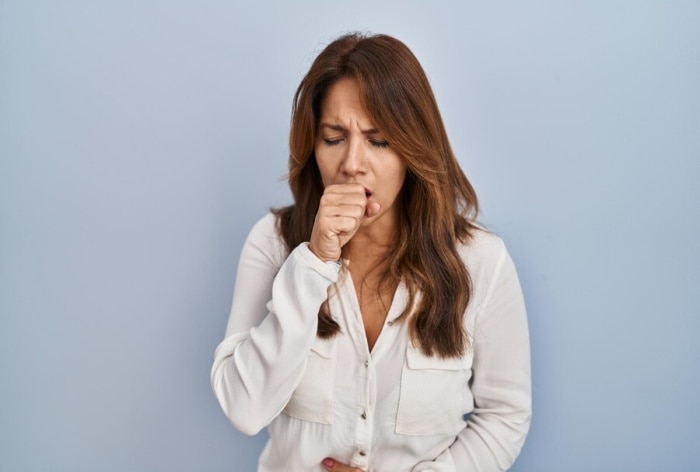The toxic dust particles amid rising pollution may also lead to sever cough and cold. Here are few ways to prevent throat discomfort naturally at home.
Rising air pollution in cities like Delhi, Mumbai, Kolkata, is becoming a serious cause of concern as there is an exponential increase in health problems amongst al age groups in these cities. From breathing issues, lung problems, and heart health to something as normal as a cough and cold, the toxic air is taking a sever toll on the overall health of everyone. With the festive season on the sidelines, several people complained of common cough and cold that maybe caused due to breathing in of toxic air. Air pollution, a significant environmental concern, can negatively impact human health in various ways, including causing respiratory issues like cough and cold.
But how does it really affect the throat?
HOW AIR POLLUTION LEADS TO COUGH AND COLD
- Irritation of Airway Lining: Air pollutants, particularly particulate matter (PM) and gaseous pollutants like sulfur dioxide (SO2) and nitrogen dioxide (NO2), can irritate the lining of the nose, throat, and airways. This irritation triggers inflammation, leading to a dry cough, sore throat, and congestion.
- Increased Mucus Production: The body’s natural defense mechanism against inhaled irritants involves producing mucus to capture and expel foreign particles. Exposure to air pollution stimulates excessive mucus production, leading to a runny nose, post-nasal drip, and a productive cough.
- Weakened Immune System: Air pollution can weaken the body’s immune system, making it more susceptible to respiratory infections. Pollutants can damage the cilia, tiny hair-like structures lining the airways, which play a crucial role in removing irritants and pathogens. This damage hinders the body’s ability to clear infections, leading to an increased risk of cough and cold.
- Exacerbation of Existing Conditions: Individuals with pre-existing respiratory conditions like asthma, bronchitis, and chronic obstructive pulmonary disease (COPD) are particularly vulnerable to the effects of air pollution. Exposure to pollutants can trigger asthma attacks, worsen bronchitis symptoms, and exacerbate COPD exacerbations, leading to persistent cough and other respiratory problems.
- Allergic Reactions: Air pollution can also worsen allergic reactions by increasing the concentration of airborne allergens, such as pollen, dust mites, and mold spores. When inhaled, these allergens trigger an immune response, leading to symptoms like sneezing, runny nose, and cough.
HOME REMEDIES TO TREAT COUGH AND COLD AT HOME
- Fluids help to thin mucus and keep the throat moist, which can help to soothe a sore throat and reduce coughing. Aim to drink eight glasses of water per day, and more if you are sick.
- When you are sick, your body needs rest to recover. Aim to get 7-8 hours of sleep per night, and more if you can.
- Gargling with salt water can help to soothe a sore throat and reduce inflammation. To do this, mix 1/2 teaspoon of salt into 8 ounces of warm water. Gargle for 30 seconds, then spit it out.
- Eating healthy foods can help to boost your immune system and fight off infection. Choose foods that are high in vitamins and minerals, such as fruits, vegetables, and whole grains.
- Smoking and secondhand smoke can irritate the airways and make cough and cold symptoms worse. If you smoke, quit. And if you are around someone who smokes, ask them to smoke outside.
- Germs can spread from your hands to your mouth and nose, so it is important to wash your hands often with soap and water. You should also avoid touching your eyes, nose, and mouth.
–>
